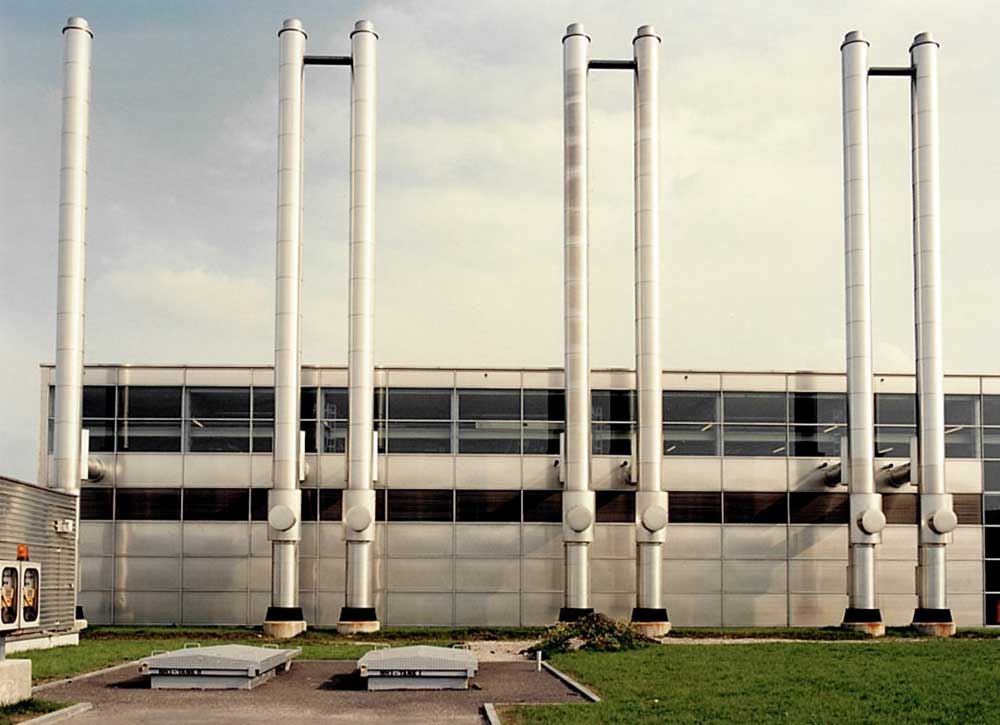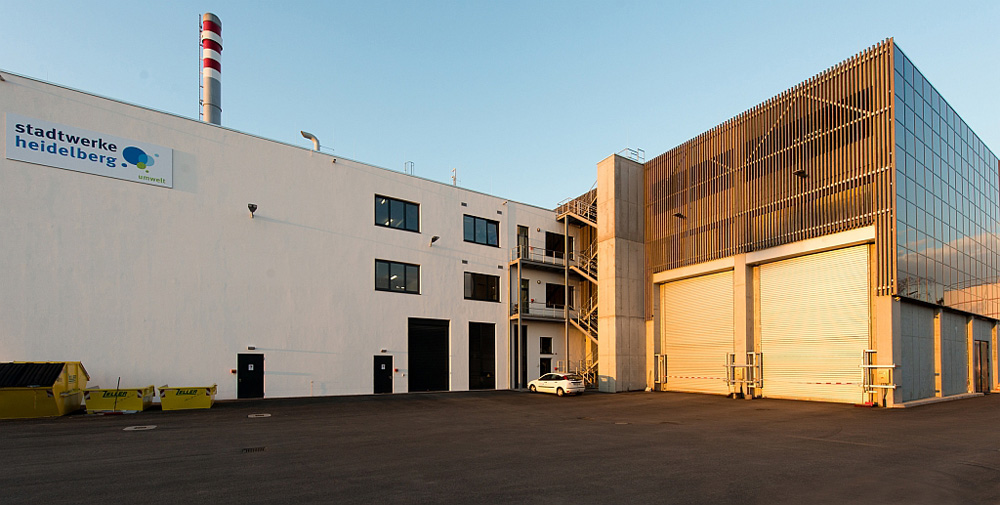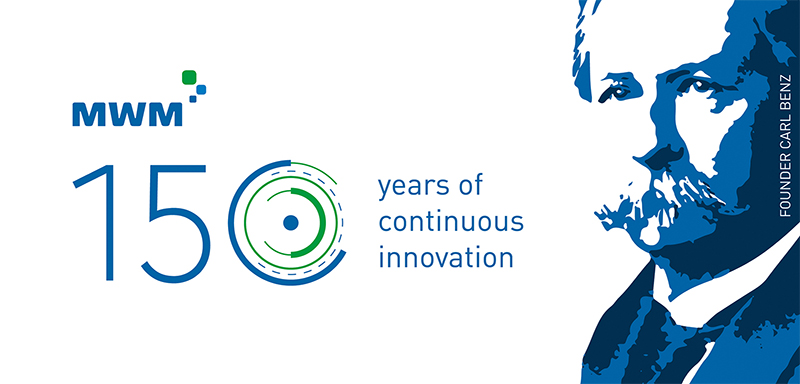Innovative Components for Efficient Intermittent Operation – MWM Gas Engines Meet Changed Requirements for Cogeneration Power Plants
Mannheim, October 18, 2016
Formerly, gas engines in power plants used to be designed primarily for continuous operation under full load. Today, the market has different needs. Michael Dressler, Product Line Manager of Caterpillar Energy Solutions and MWM cogeneration power plant expert, summarizes the previous customer requirements as follows: “If possible, never switch off and do not wait too long.” He adds: “Today, the utilization profiles of the cogeneration plants especially necessitate generator sets that can be started and stopped flexibly and that achieve maximum performance levels even under partial load, without impairing the gas engine’s useful life.”
Pre-Heating System Protects Gas Engine Components
In the past, the gas engine of a CHP plant used to be started no more than 10 times a year. Today, the gas engine of a cogeneration power plant that runs in the energy feed-in-oriented operating mode may be started and stopped more than 1,500 times. The onset of the gas combustion when the plant is started results in temperature differences in the individual engine components (e.g. in the cylinders, cylinder heads, pistons, and on the exhaust side) which cause material tension and different clearances. Some time ago, MWM responded to the trend toward intermittent operation by installing a pre-heating system as a standard component. This system is connected to the cooling water circuit and heats up to 40 to 60°C before the cogeneration power plant is started.
 MWM cogeneration power plant at Munich Airport, Germany (Photo: Munich Airport)
MWM cogeneration power plant at Munich Airport, Germany (Photo: Munich Airport)
MWM Integrates Pre-Lubrication System as Standard Component of its Cogeneration Power Plants
As the lubricant film in the gas generator set is not yet fully established at the beginning of a new operating cycle, intermittent operation results in increased friction effects. Especially in the case of prolonged standstill, these effects speed up the wear and tear and, in the long run, have a negative impact on the maintenance intervals of the cogeneration power plant. For this reason, a pre-lubrication system that ensures an adequate oil pressure immediately when the gas engine is started represents another key component for improved start-up reliability and useful component life. MWM has integrated such a system in the form of a separate electrical pump that is aligned parallel to the main oil pump in its cogeneration power plant. Like the pre-heating, the pre-lubrication can be effectively adapted to the operating mode of the gas engine. The generator set pre-lubrication takes place before the motor starts and after it is switched off. This separate electrical pump enables post-lubrication and cooling of components such as the turbo charger.
The MWM experts agree that pre-heating and pre-lubrication are effective and actively contribute to a longer useful life of the generator sets. Nevertheless, they advise customers to observe a minimum operating time between the more frequent starts, especially also because the starter components of a cogeneration power plant are subject to increased wear and tear in the case of intermittent operation. According to Dressler, battery-operated starter systems are still very common; thus, starter and battery wear is inevitable after a certain number of starts. MWM has found a solution to this problem as well. MWM gas gensets allow the deployment of a grid-powered device to start the cogeneration power plant. For this, energy from the central power grid is used for the purpose of starting the engines electrically.
 Cogeneration plant Pfaffengrund, Germany (Photo: Stadtwerke Heidelberg)
Cogeneration plant Pfaffengrund, Germany (Photo: Stadtwerke Heidelberg)
Gas Engines in Partial Load Operation
Apart from the more frequent gas engine starts and stops, the change between partial load and full load operation is becoming increasingly important. For example, in the event of problems in the power grid, the cogeneration plants must be capable of switching from partial load to full load fast enough to balance the fluctuations. If the plant is able to do so within seconds, its capacity is referred to as “primary reserve capacity”, if this takes up to five minutes, it serves as “secondary reserve capacity”, and if 15 minutes pass, it is called “minute reserve capacity”. Currently, MWM guarantees “secondary reserve capacity” operation. However, Product Line Manager Dressler assures that “we still have potential and want to further optimize the engine control”.
The overall efficiency of a CHP plant does not change in partial load operation. However, the electrical efficiency drops, and the thermal efficiency goes up. For this reason, many gas engine manufacturers including MWM are currently working on solutions to deliver maximum electrical efficiency in partial load operation. Moreover, some engine components are exposed to more strain in partial load operation than under full load conditions. Compared to the high temperatures inside the gas genset during full load operation, the temperatures are lower in partial load operation. Accordingly, the pistons expand less and the pressure on the top piston rings drops, resulting in room for gas that cannot burn. For MWM gas engines to reach a partial load of 50 percent without reducing the useful life of the gensets, many piston changes have been implemented in development programs in recent years. Meanwhile, cogeneration power plants have been adapted to partial load operation to such an extent that the reduced capacity utilization even has a positive impact on the useful life of many MWM engine components.
Further information
Contact Media
Aljoscha Kertesz
Manager Communications
T +49 621 48 18 35 76
E mwm-press@cat.com
Frank Fuhrmann
Online Editor
Member of DPV / German Press Association
T +49 621 48 18 35 16
E mwm-press@cat.com








































